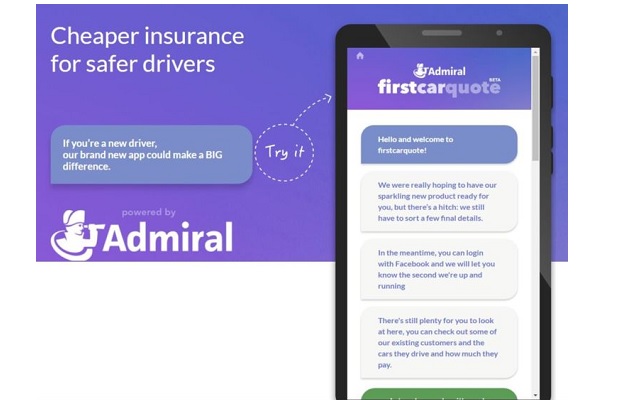Facebook has blocked insurance firm Admiral’s new scheme to assess the personalities of first-time drivers by analysing their Facebook profiles, citing privacy concerns.

Under the “First Car Quote” scheme, Admiral claimed that those who opted-in would receive a discount of up to 15%.
Admiral said it would use an algorithm to examine social media pages to determine whether prospective customers would be careful drivers.
However, Facebook has said it would be against its guidelines to allow Admiral to offer customers reduced quotes in return for access to their profiles.
Admiral has subsequently postponed the scheduled launch of its firstcarquote app.
A spokesperson for Facebook said: “We have made sure anyone using this app is protected by our guidelines and that no Facebook user data is used to assess their eligibility. Our understanding is that Admiral will then ask users who sign up to answer questions which will be used to assess their eligibility.”
In a message on its website, Admiral said: “We were really hoping to have our sparkling new product ready for you, but there’s a hitch: we still have to sort a few final details.”
A spokeswoman for the insurer said the initiative would still go ahead, but in a reduced format.
She said: “Following discussions with Facebook the product is launching with reduced functionality, allowing first-time drivers to login using Facebook and share some information to secure a faster, simpler and discounted quote.”
Facebook will allow people to use their accounts to log in to the Admiral app, and for verification purposes, but will not allow the insurer to view users’ posts to work out discounts.
The insurer was going to examine posts and likes by the Facebook user, although not photos, looking for habits that research shows are linked to these traits. These include writing in short concrete sentences, using lists, and arranging to meet friends at a set time and place, rather than just “tonight”.
In contrast, evidence that the Facebook user might be overconfident – such as the use of exclamation marks and the frequent use of “always” or “never” rather than “maybe” – will count against them.
